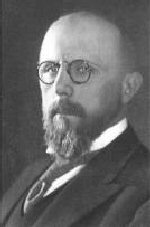Alexandre Galopin
| Alexandre Galopin | |
|---|---|

Portrait of Alexandre Galopin
|
|
| Born |
Alexandre Marie Albert Galopin 26 September 1879 Ghent, East Flanders, Belgium |
| Died | 28 February 1944 (aged 64) Etterbeek, Brussels, Belgium |
| Nationality | Belgian |
| Occupation | Businessman |
| Known for | Galopin Doctrine |
Alexandre Galopin (26 September 1879 – 28 February 1944) was a Belgian businessman. He was director of the Société Générale de Belgique, a large Belgian company founded in 1822 by William I, and chairman of the board of the armaments company Fabrique Nationale d'Armes de Guerre. Galopin was behind the Galopin Doctrine, a "lesser evil" (moindre-mal) tactic that allowed industrial development in the occupied Belgium during World War II, under the auspices of the Belgian government in exile. In February 1944, he was murdered by Flemish collaborators from the DeVlag group.
Born to a university professor in Ghent on 28 September 1879, Galopin became in 1913 managing director of FN Herstal. He championed its development into an important manufacturer of motor vehicles in Belgium. In 1935 he became governor of the Société Générale de Belgique (SGB), a giant holding company with close ties to the Belgian government which dominated the economy of Belgium and its empire and controlled almost 40 percent of the country's industrial production.
On 10 May 1940, Belgium was invaded by Nazi Germany. At the start of the German occupation, Galopin was made chairman of a committee, dubbed the "Galopin Committee", which brought together the leaders of Belgian holding companies, banks and industry. The committee had been set up by the Belgian government, shortly before it left the country, on 15 May 1940. It served as a sort of a shadow government that decided economic and social policy and was able to set rules for dealing with the Nazi German occupiers. Albert-Edouard Janssen and Léon Bekaert were among its members. Because of his power and influence within the Belgian wartime economy, he was nicknamed "the Uncrowned King of Belgium" by German occupation officials.
...
Wikipedia
